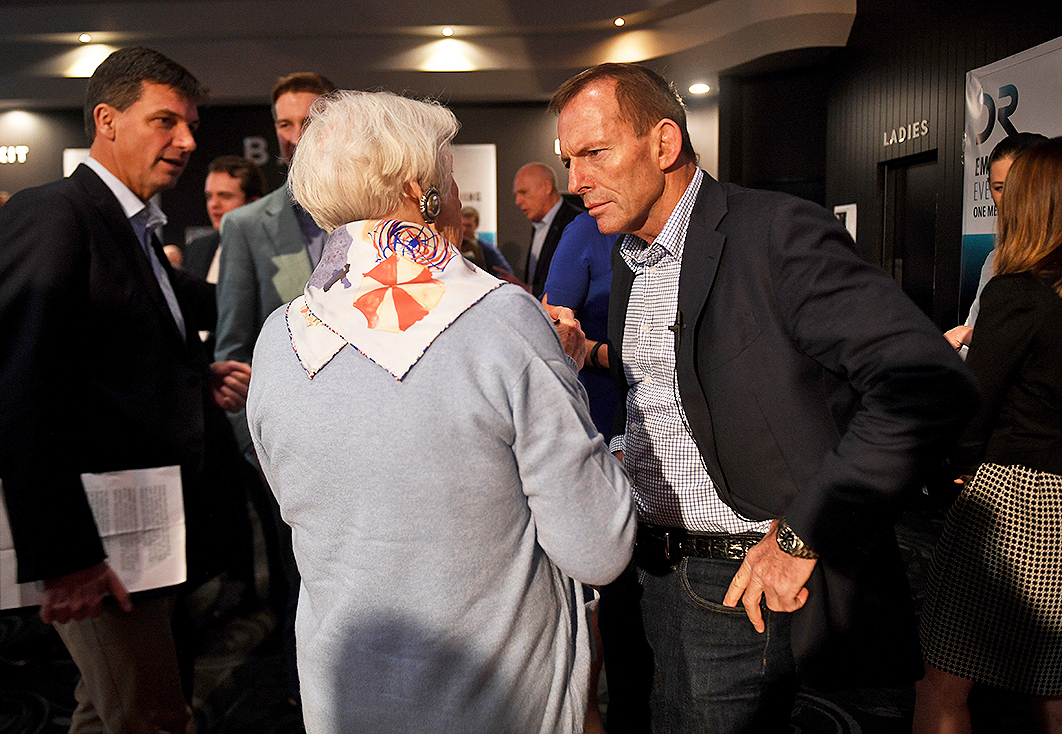New Liberal Party president Nick Greiner uttered a formulation this week that made no sense whatsoever. Warning that disunity is death for political parties, and that continuing public bickering within the Turnbull government would lead to defeat at the next election, he declared that Malcolm Turnbull and Tony Abbott need to get together and sort out their differences.
“Only they are capable of resolving it,” he explained. “They need to resolve it face-to-face, they need to solve it directly, not through intermediaries.”
Has the former NSW premier really been away from politics for so long he’s forgotten it involves actual human beings, with flesh and blood? These are matters that go to people’s very sense of themselves and their place in the history books. It’s not a simple falling-out: certain irresistible dynamics are at play, some of them elements we’ve already witnessed in action, between 2011 and 2013, during the Julia Gillard–Kevin Rudd saga.
Two months shy of two years ago, Abbott was toppled as prime minister, a traumatic experience from which he will never recover. The poor 2016 election result and subsequent run of bad opinion polls mean that Turnbull is now a weakened prime minister. The deposed leader perceives a fatally wounded prey and is going for the kill. Deep down, he craves vindication, and this can’t be sorted out in any number of private tête-à-têtes.
One of the more politically fantastic ideas you hear from time to time is that if only Turnbull had brought Abbott into cabinet his hurt would have been salved and he’d be a happy team player. When people suggest such a thing, it’s a pretty good indicator that they’re keen to see Abbott return (the Liberal president is unlikely to be one of those), or at least desire Turnbull’s demise. “Tony has given up any idea of returning to the leadership,” they assure with straight faces. “All he wants is the respect due to a former prime minster.”
Abbott back in cabinet, in a senior position, preferably one where he can wax philosophical about the glory of Western civilisation, the existential threats the country faces, the perils of Daesh. Contradicting colleagues, stoking the “base.” Could the country bear it? And it would only be a matter of time before he resigned on a “matter of principle.”
Greiner also confuses cause and effect. Abbott feels emboldened because the Coalition appears headed for defeat at the next election. It’s not the other way around. His antics sure don’t help, but they won’t be the reason for the upcoming change of government (any more than Rudd was responsible for the Gillard government’s woes). If the Coalition were comfortably ahead in the polls, public dummy spits from this electorally poisonous ex-leader would barely be noticed, and then only to be dismissed as the sad outpourings of a bitter backbencher.
“Malcolm and Tony need to sort out their differences” belongs with that other contemporary fable, the one about how politicians today are not a patch on the greats of yesteryear: Howard, Hawke, Keating, Costello. Let us worship the ground they trod on, hang off their every recent self-serving utterance, ignore the galloping international economic conditions and friendly (by recent standards) Senates they governed under.
The other main political story of the week involves section 44 of the Constitution, which sent off two Greens senators who had failed to renounce their citizenship of other countries. It’s a law from a time, long ago, hermetically sealed in the nation’s blueprint. Other countries have long disposed of such anachronisms, but not us, because it would require a referendum, and Australians usually reject those.
The Senate, too, was devised at a time when political parties as we know them did not yet exist, in order to protect the interests of the less populous states. It serves a totally difference purpose now.
There’s little a country like Australia can do about the economic winds the world blows our way. But we can do something about our parliamentary arrangements – except we can’t, really, because, well, it would require popular approval.
One whistlestop on Tony’s Comeback Tour is a suggested change to the Constitution to allow joint sittings of parliament to override Senate obstinacy. It’s a very modest idea (and would have made a difference to the government he led, but not the current one – you can see what he was doing there) but it stands no chance of passing a referendum.
Since the global financial crisis, with depleting major-party support and hence growing Senate crossbenches, governing Australia today is much more difficult than it used to be. By all means, put Tony and Malcolm together in a room, bang their heads together, let them have it out. It will change nothing. •





